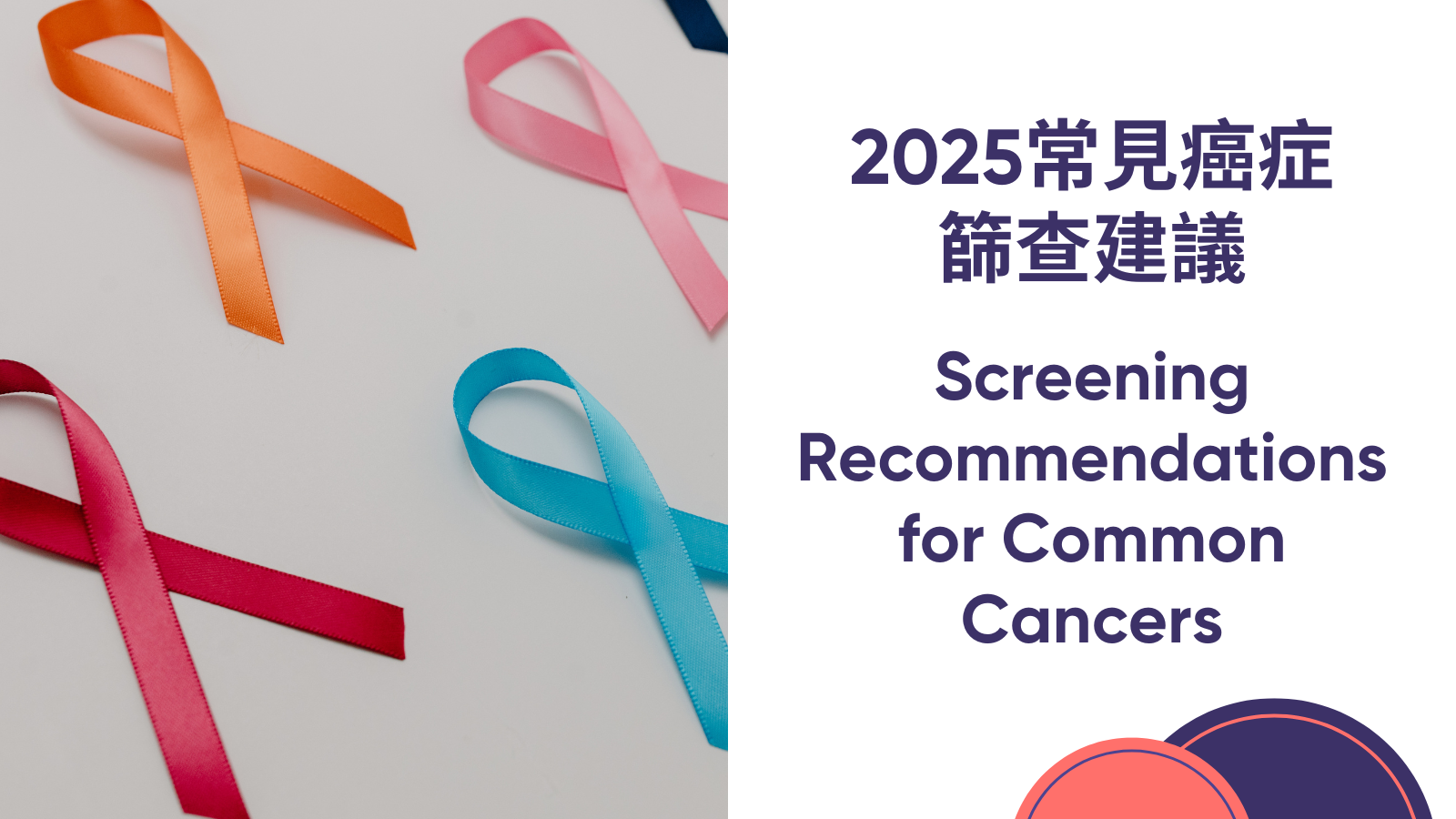Regular screenings improve early detection and treatment outcomes. Individuals with a family history, genetic predispositions (e.g., BRCA mutations), or other risk factors should consult their doctors for personalized screening guidance.
1. Breast Cancer
Age Group:
- 40-44: Optional annual mammogram. Women may choose to begin screening
- 45-54: Annual mammogram
- 55+: Biennial mammogram, or continue annual screening if in good health and life expectancy is 10+ years
2. Cervical Cancer
Age Group:
- 25-65: Preferred: Primary HPV DNA test every 5 years; Alternatives: Pap & HPV co-test every 5 years, or Pap test alone every 3 years
- 65+: Discontinue screening if previous 10 years of tests were negative, with the most recent within the past 5 years
- Any Age: No screening if no history of cervical cancer or CIN2+ in the past 25 years
3. Colorectal Cancer
Age Group: 45+ Choose one of the following screening options, based on your doctor’s recommendation:
- Annual high-sensitivity gFOBT or FIT
- Multi-target stool DNA test (MT-sDNA) every 3 years
- Flexible sigmoidoscopy or CT Colonography every 5 years
- Colonoscopy every 10 years
4. Lung Cancer
Age Group: 50-80
- Annual low-dose CT (LDCT) for individuals with a 20+ pack-year smoking history who currently smoke or quit within the past 15 years, and have a life expectancy of 5+ years
5. Prostate Cancer
Age Group:
- 45+ (high risk): Men at higher risk (e.g.,family history) should begin discussion earlier
- 50+ (average risk): Discuss PSA testing (with/without digital rectal exam) with a doctor if life expectancy is 10+ years
6. Endometrial Cancer
Age Group: Menopause
- Women should be informed about risks and symptoms. Report any unexpected bleeding to a physician. Routine screening is not recommended unless high risk (e.g., Lynch syndrome)




